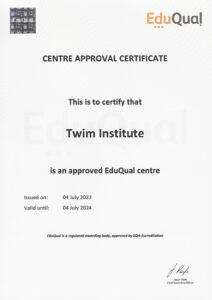
Introduction
Nigeria is one of the several African countries that are highly superstitious especially when it comes to certain foods and eating habits. A lot of us grew up with most of these myths being sung to our ears so much we believed most of them were true even till now.
Nigeria, like many other countries, has its fair share of popular myths about nutrition. These myths are often passed down from one generation to another, and they can have a significant impact on people’s dietary choices and health outcomes.
Some of these myths may have originated from cultural beliefs or personal experiences, while others may have been perpetuated by the media or unscrupulous marketers.
Unfortunately, many of these nutrition myths are not supported by scientific evidence and can lead to misinformation, confusion, and even harm. For instance, some of these myths may encourage people to avoid certain nutritious foods or rely on expensive and potentially harmful supplements.
Therefore, it is essential to debunk these myths and provide accurate information to help people make informed decisions about their diets.
In this regard, this article aims to highlight some of the popular myths about nutrition in Nigeria and provide evidence-based explanations to dispel them.
10 Popular Nutrition Myths in Nigeria
Most Nigerians are familiar with the following myths about food:
1. A very popular myth all over the country is that if you swallow seeds from a fruit, a tree will grow on your head or in your stomach. Growing up, I heard this quite often especially when you mistakenly swallow orange or tangerine seeds…lol. Well, this isn’t true.
2. Standing while eating is also highly frowned upon in Nigeria. It is believed that the food would not go to the right places, hence, one won’t get filled or satisfied even after eating. Ridiculous, right?
3. Snail meat is highly nutritious and proteinous but pregnant Nigerian women, are discouraged from consuming it because it is believed the child born of the woman would drool a lot. In addition to this, it is also believed one’s destiny would be drawn back as well. Hilarious, right?
4. Growing up, it was believed that once your food falls to the ground, you are not expected to pick it up and eat it because it has been eaten by the devil. Lol. Honestly, the mere thought of these myths while writing this article is making me break into laughter once again.
5. As kids, it was very common to be tempted to eat one’s meat, fish, or egg served with the food even before eating the main dish. However, our Nigerian parents mostly frowned at this attitude because it is believed such children would be gluttonous.
6. The nutritional benefits of coconut water are highly enormous but what to do? Especially as most of us grew up with the myth that coconut water makes one dumb. One of the reasons a lot of us grew up avoiding drinking coconut water. To be honest, I wonder who started this myth though, I can’t help but think out loud…chai!
7. Beans are very high in protein, a lot of us believed that a person’s height was mostly because he/she eats a lot of beans. I heard this a lot, and even to date, that the reason for me being tall is that I eat beans a lot. Coincidentally, beans happen to be one of my favorite foods. Cliché, right?
8. This particular myth is very common among the Igbos in Nigeria. It is believed if you see a conjoined set of plantain fingers, you are expected to separate them behind your back, and not before your eyes as it is believed that you will birth a set of conjoined twins.
9. Some Nigerians believe that drinking palm oil can cure various illnesses, including stomach ulcers, asthma, and even cancer. However, there is no scientific evidence to support these claims. Drinking excessive amounts of palm oil can only lead to weight gain and other health problems.
10. Another popular myth is that fruits should not be eaten with meals. Many Nigerians believe that fruits should not be eaten with meals, as they can cause digestive problems. However, there is no scientific evidence to support this claim. Consuming fruits with meals can help improve digestion and provide essential vitamins and minerals.
Conclusion
In conclusion, several popular nutrition myths in Nigeria have been widely circulated and believed in over the years. These myths are often rooted in cultural beliefs and traditions and are passed down from generation to generation. However, many of these myths have been debunked by scientific research, and it is essential to be aware of the facts when it comes to nutrition and health.
It is important to note that nutrition is a complex topic, and there are many factors to consider when it comes to making healthy food choices.
Rather than relying on myths and hearsay, it is best to seek advice from qualified nutritionists and healthcare professionals to ensure that you are getting accurate and reliable information. By doing so, you can make informed decisions about your diet and achieve optimal health and well-being.
When you register for our Culinary Arts course at Twim Institute, you not only learn how to make delicious local and international dishes but also have unlimited access to accurate and reliable information on everything relating to food. For more inquiries, send a message to +2349033279205.
Which other myths have you heard of, different from the above-mentioned ones?




